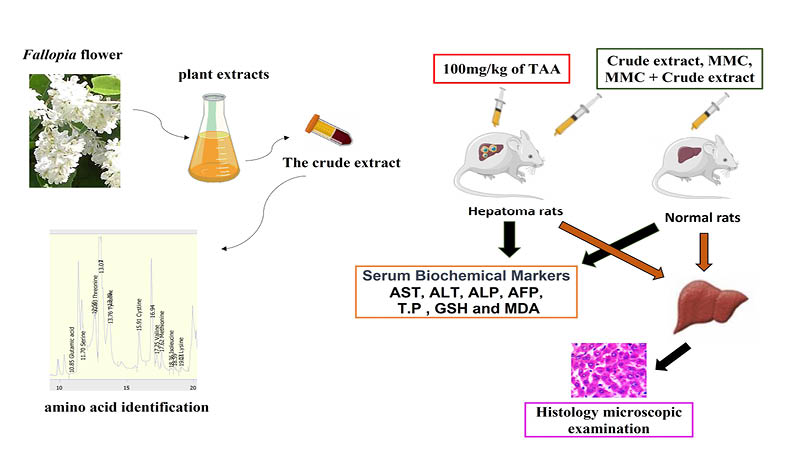Role of fallopia plant extraction in induced hepatocellular carcinoma
DOI:
https://doi.org/10.17344/acsi.2023.8387Abstract
In 2020, around 19.3 million new cancer cases resulted in 3.5 million deaths. It is estimated that there will be 28.4 million cases by 2040. Plant-derived natural products, such as alkaloids, flavonoids, terpenoids, and phenolic compounds, offer a wide range of chemical structures and biological activities that can be explored for their potential in cancer research.
In a particular study, researchers investigated the potential anticancer effects of Fallopia flower extracts on cancer induced by TAA (a carcinogen). They examined the extracts to identify specific amino acids with antioxidant properties and assessed their impact on liver function and tissue structure. The results showed that the plant extracts had positive effects on the histological section of the TAA-treated group. Additionally, the group of male rats treated with TAA and a chemotherapy drug called MMC displayed positive effects. Similarly, the group of male rats treated with TAA, flower plant extract, and MMC also showed positive effects. These findings suggest that the extract from Fallopia flowers could be considered as a traditional therapy with potential anticancer properties.

Downloads
Published
Issue
Section
License
Copyright (c) 1970 Hameed Hamza, Luma Baker, Shaymaa Jalal Aldin

This work is licensed under a Creative Commons Attribution 4.0 International License.
Except where otherwise noted, articles in this journal are published under the Creative Commons Attribution 4.0 International License
